High-Risk Pregnancy in Mahishadal
Pregnancy is often celebrated as a joyful journey—but for some, it carries additional medical challenges that require close monitoring and advanced care.
A high-risk pregnancy may result from pre-existing health issues, complications during a previous birth, age-related concerns, or unforeseen developments like gestational diabetes or preeclampsia. These pregnancies demand a deeper level of surveillance and proactive intervention to ensure the health and safety of both mother and baby.
Dr. G.S. Tunga, an acclaimed gynecologist and high-risk pregnancy obstetrician in Mahishadal, explains, “High-risk pregnancies need not be feared when managed with vigilance and expertise. Every situation is unique, and a personalized, step-by-step approach makes all the difference.”
At Healing Touch Nursing Home, Dr. G.S. Tunga offers comprehensive and advanced obstetric services. With over 18 years of experience and a deep specialization in high-risk pregnancy, fertility care, and minimally invasive gynecological surgeries, he is known for combining cutting-edge technology with compassionate, patient-centric care.
When Should You See a High-Risk Pregnancy Doctor in Mahishadal?
Pre-existing Medical Conditions:
Diabetes, hypertension, kidney disorders, thyroid imbalance, or autoimmune diseases require specialized monitoring.
History of Complications During Pregnancy:
If you have suffered a miscarriage, preterm labor, stillbirth, or cesarean section, visit early.
Age-related Risks:
Women under 17 or over 35 are at increased risk. This falls under the category of high risk pregnancy age.
Multiple Pregnancies:
Carrying twins or more automatically categorizes your pregnancy as high risk.
IVF or Fertility Treatment Pregnancies:
Assisted reproductive methods may raise the risk of problems.
Placenta Problems or Cervical Insufficiency:
These increase the risk of preterm labor or complications during delivery.
High Risk Pregnancy Signs:
Symptoms like severe headaches, swelling, blurred vision, or unusual fetal movements signal the need for expert care.
What Tests Are Done to Diagnose High-Risk Pregnancy at Our Nursing Home?
At Healing Touch Nursing Home, each diagnostic test is carefully chosen for early detection and optimal management of any complication. Here are the primary evaluations conducted during high-risk pregnancy care:
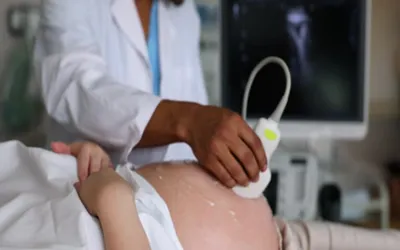
Ultrasound Scans:
These imaging tests are used frequently to monitor fetal growth, check for congenital abnormalities, evaluate amniotic fluid levels, and assess placental position—especially vital in high-risk pregnancy assessment.
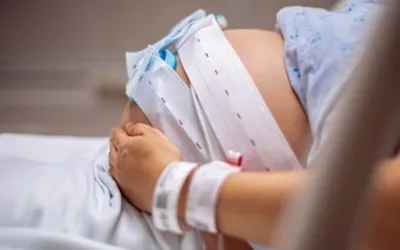
Non-Stress Test (NST):
A painless, straightforward test that measures the baby’s heart rate patterns during movement, used to identify early signs of distress.
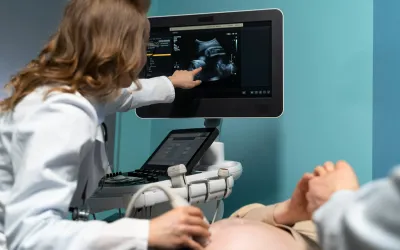
Biophysical Profile (BPP):
A combination of ultrasound and Non-Stress Test, this test assesses fetal health on the basis of parameters such as movement, tone of muscles, breathing, and amniotic fluid index.
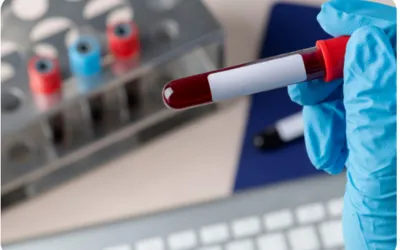
Blood Tests:
Regular bloodwork checks for conditions like anemia, gestational diabetes, infections, and preeclampsia markers such as elevated liver enzymes and low platelet count.
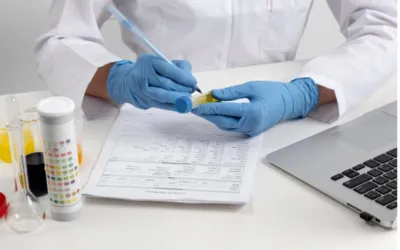
Urine Tests:
Urinalysis helps identify signs of preeclampsia (protein in the urine), urinary tract infections, or gestational diabetes.
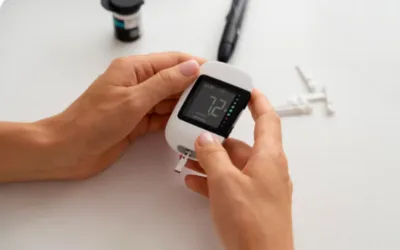
Glucose Tolerance Test (GTT):
Critically important in screening for gestational diabetes, especially in mothers above 30 years or with a history of diabetes in family.
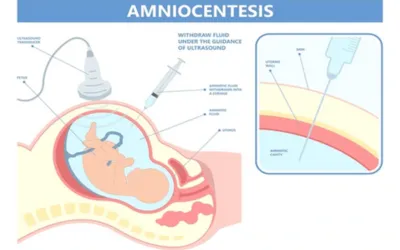
Amniocentesis:
Recommended in a few cases for genetic disorder detection or infection, and especially when initial screenings suggest higher risk.
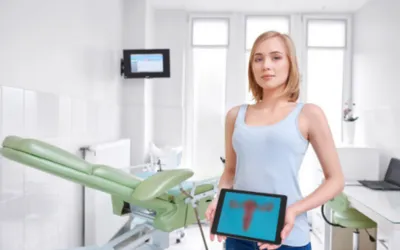
Cervical Length Measurement:
A transvaginal ultrasound can be employed to evaluate cervical changes that can predict the risk of preterm labor.

Fetal Echocardiography:
In case there is a suspicion of congenital heart disease, the test gives a clear image of the structure and function of the baby’s heart.
Management of High-Risk Pregnancy at Healing Touch Nursing Home
Early Risk Identification:
Careful assessment of medical history, lifestyle, age, and previous pregnancy status is conducted in order to gauge the level of risk at the very first visit.
High-Frequency Monitoring:
Expect more frequent prenatal appointments and ultrasounds to track the baby’s growth and ensure any complications are detected early.
Customized Nutrition & Lifestyle Guidance:
Meal plans are carefully designed to nourish fetal growth while monitoring blood pressure, blood sugar, and weight—major factors in risk elevation.
Safe Medication Management:
Conditions such as hypothyroidism, hypertension, and diabetes are managed with pregnancy-safe medications, dosed at each stage as indicated.
Specialist Collaboration:
Complex cases are co-managed by a multidisciplinary team, including endocrinologists, cardiologists, and neonatologists, depending on individual requirements.
Hospital-Based Monitoring & Emergency Readiness:
Having 24/7 monitoring facilities and instant surgical intervention and neonatal ICU availability, Healing Touch facilitates prompt action in emergency situations.
Birth Planning:
Early on, options for delivery are considered. Whether a C-section or vaginal delivery is the best approach depends on the ongoing health of the mother and baby—patients have a say in every decision.
Why Choose Healing Touch Nursing Home for High-Risk Pregnancy in Mahishadal?
Expert Supervision by Dr. G. S. Tunga:
With a strong track record of managing complex pregnancies, Dr. Tunga, a prominent high-risk pregnancy obstetrician in Mahishadal, is known for his calm expertise, precise diagnostics, and proactive intervention strategies.
State-of-the-Art Infrastructure:
The facility is equipped with a modern labor room, neonatal ICU, high-resolution ultrasound systems, and in-house diagnostics—all tailored for high-risk cases.
24/7 Emergency Readiness:
24/7 monitoring and quick response capacity guarantee instant care in any critical event.
Comprehensive Maternity Services:
From counseling during antenatal to postnatal recovery, patients are provided with ongoing care through each trimester and beyond.
Team-Based Approach:
Mutual collaboration of pediatricians, anesthesiologists, dietitians, and nursing personnel helps provide multi-dimensional support to both mother and child.
Patient-First Philosophy:
Every decision is made in consultation with the patient, fostering confidence, clarity, and emotional comfort.


